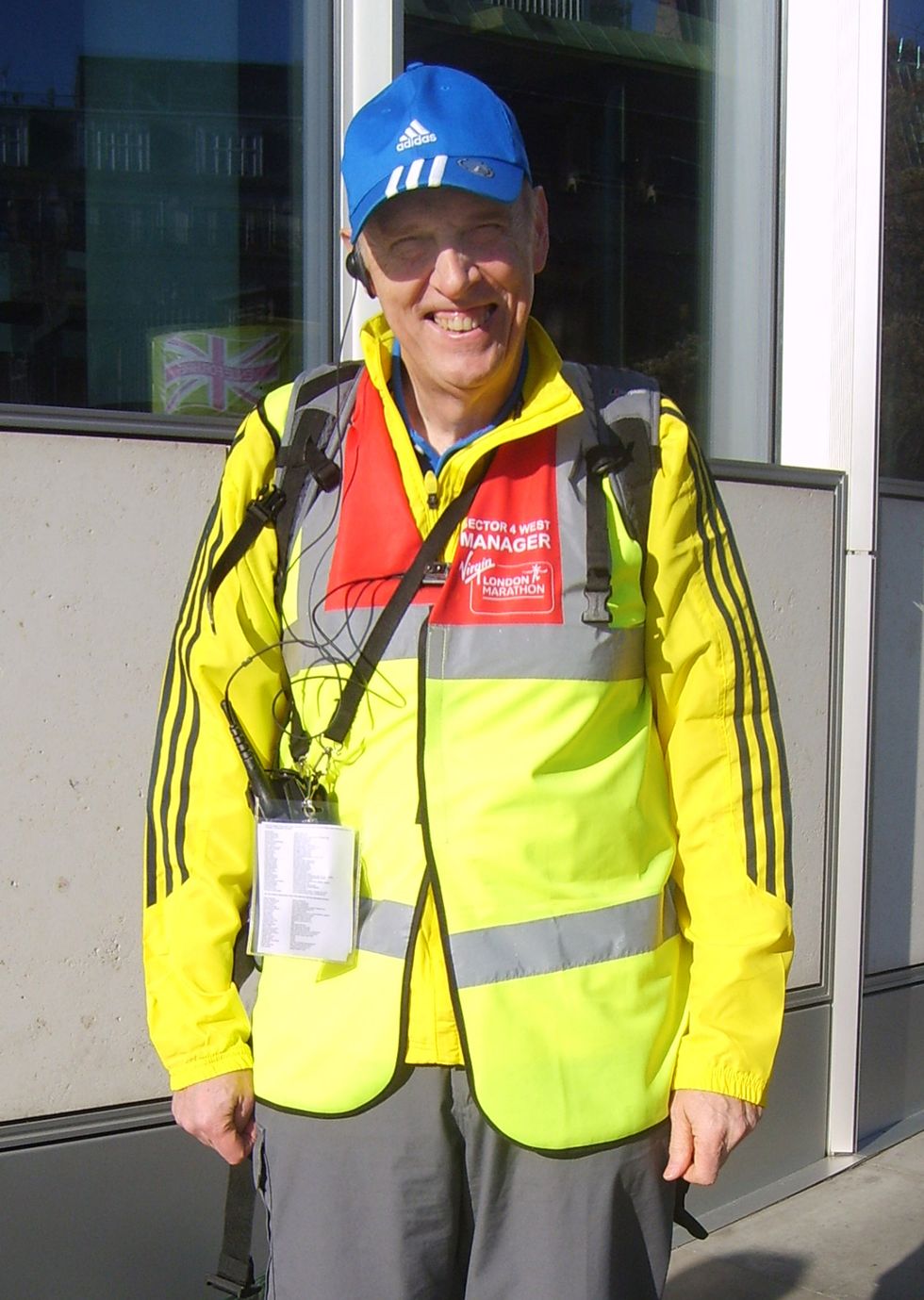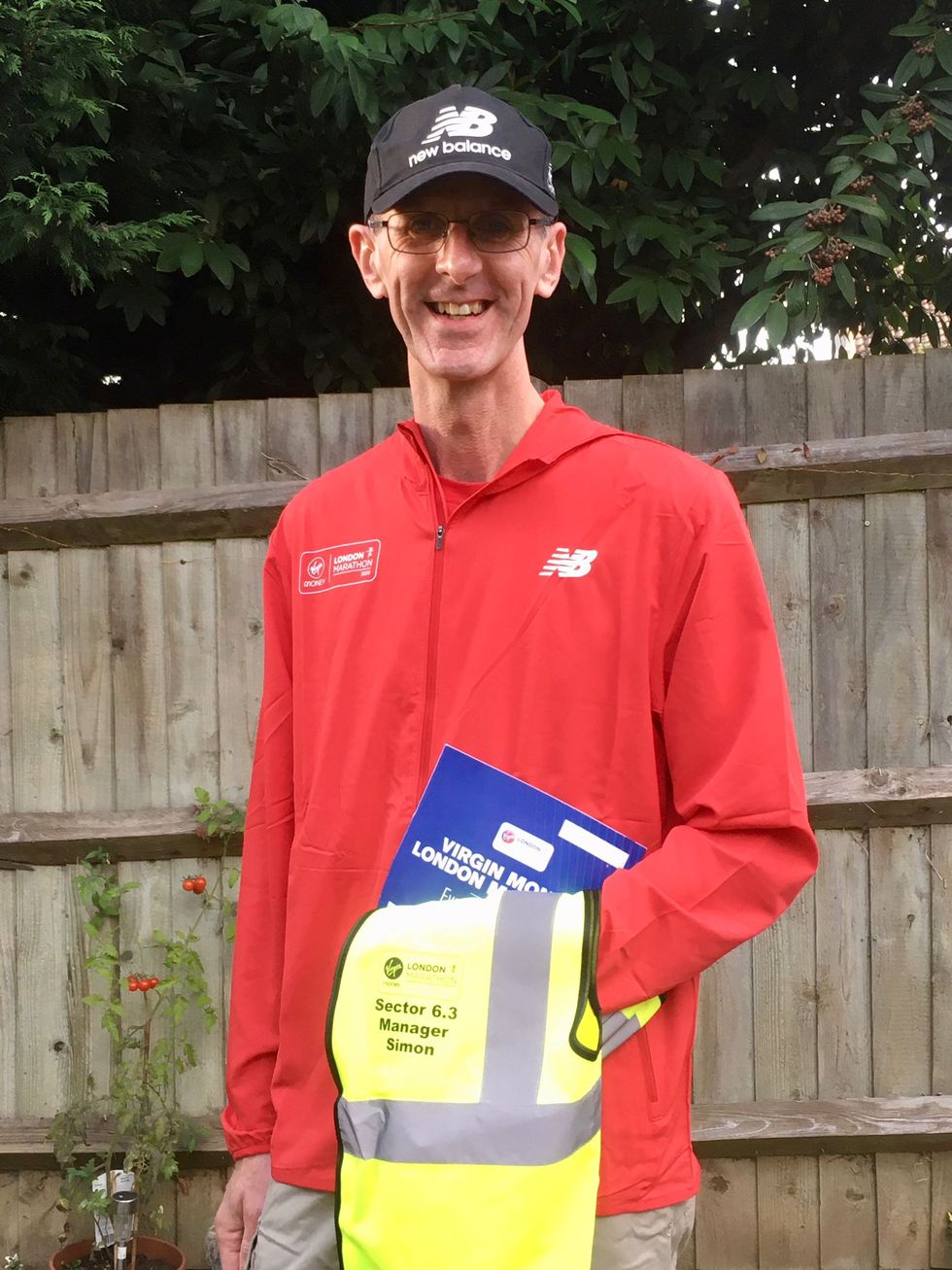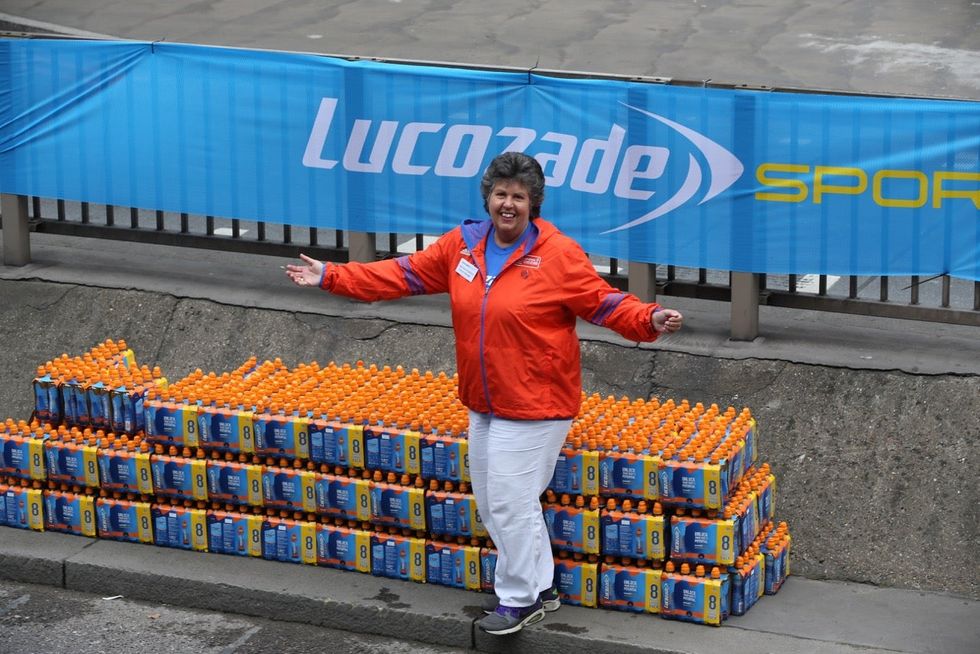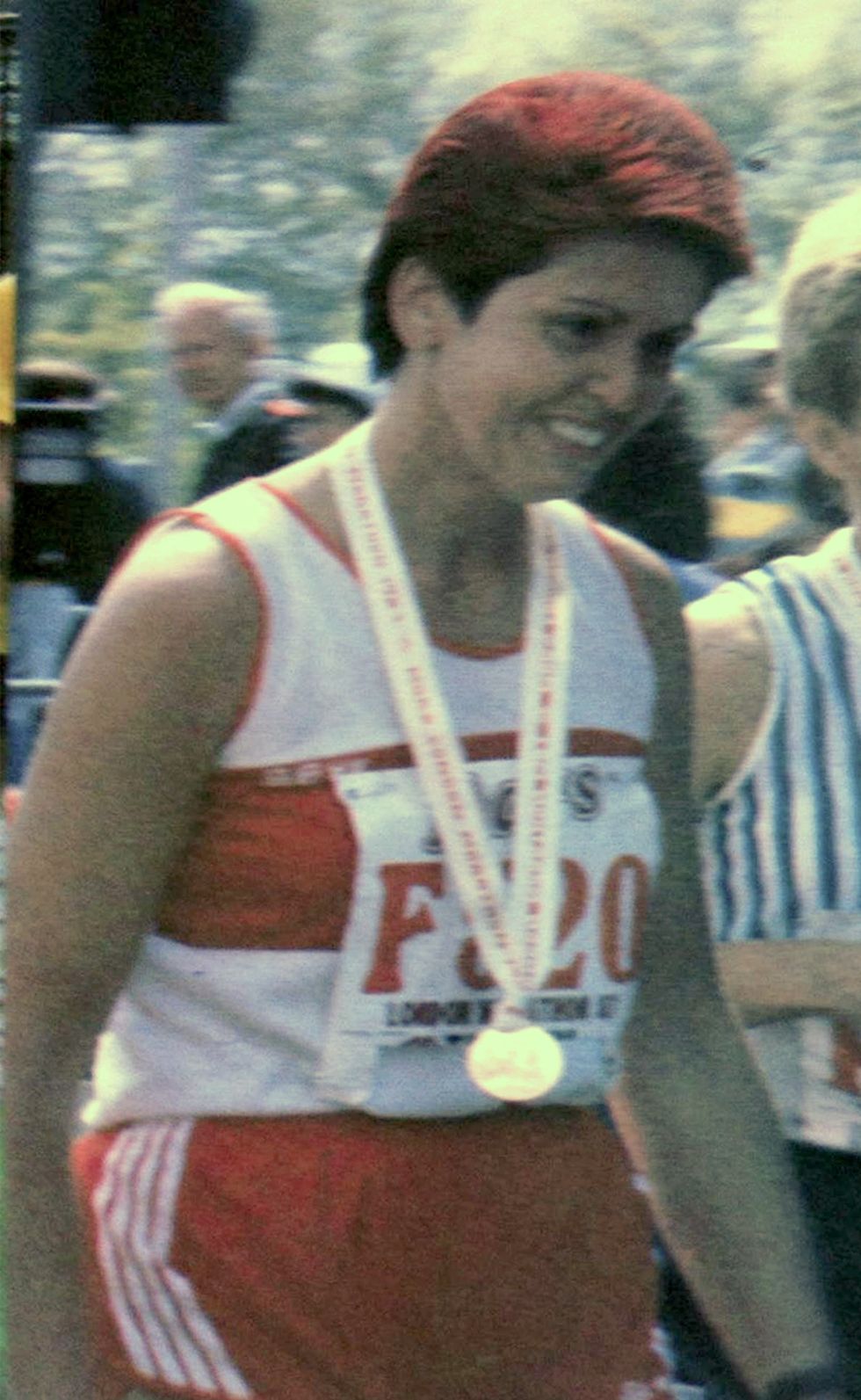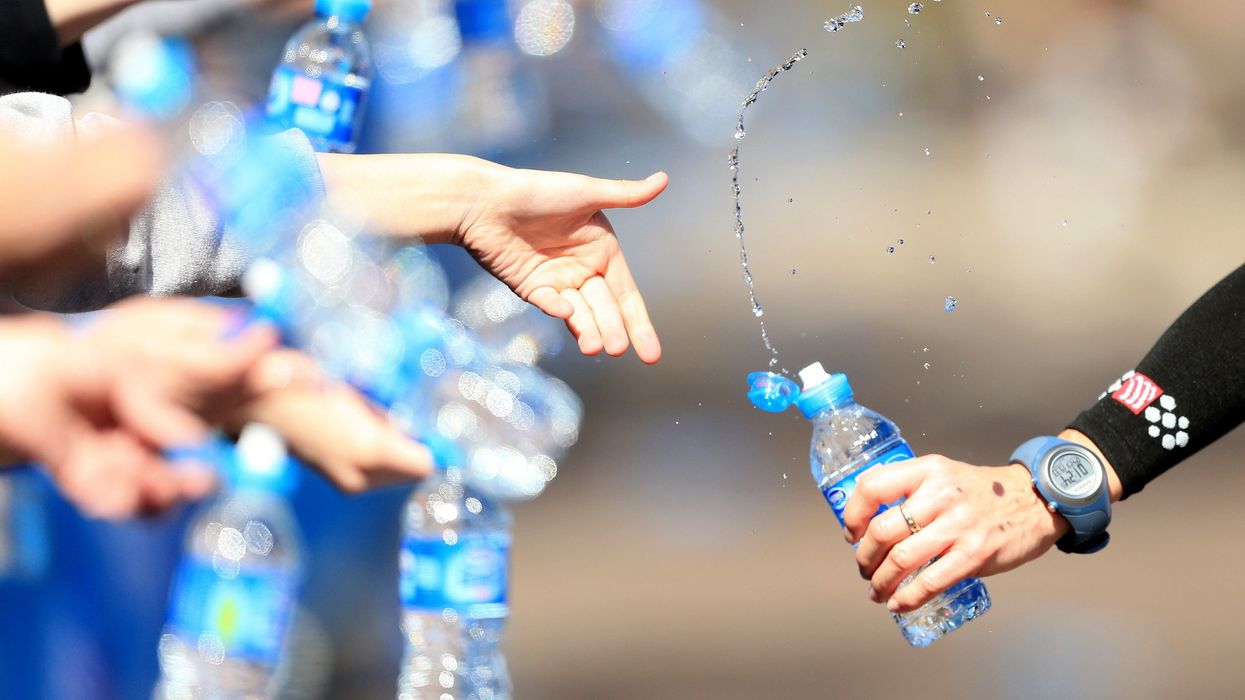
The London Marathon will see more than 40,000 runners return to the capital’s street’s on Sunday but the event could not happen without thousands of volunteers.
Those handing out drinks and shepherding spectators do not get a medal at the end of their long, tiring day, with many just enjoying being part of the annual celebration of human achievement.
Carl Woffington, 73, from Wokingham, near Reading has volunteered at every London Marathon since the event began in 1981, except last year when he watched it on TV as coronavirus restrictions meant only the elite athletes competed in the city centre.
He knew the event’s founders Chris Brasher and John Disley through orienteering and offered to help when they asked for volunteers to make sure runners took the right route.
“There were no bibs or cordons or anything formal back then, we just turned up on the corner and waved runners past,” said the retired chartered engineer.
Mr Woffington, who supplies marshals from Reading Roadrunners, has never wanted to run the event himself: “Before London Marathon started, people who ran in the streets were ‘idiots’, there were very few.
“And then there was a very big boom in America for jogging. And it came across to Britain and from that boom in America, the modern marathons like New York and London, they all sprung up after that.
“But I actually ran my marathons before that running boom.”
Mr Woffington is sector manager at mile 23, where runners pass the Tower of London for the second time, and he said people often drop bank cards and rail tickets when they take out their phone for a selfie.
One marshal even reunited a runner with his wedding ring after it fell off his finger during the race.
Mr Woffington, who led a team of marshals at the London 2012 Olympics, said: “Eventually I suppose I’ve got to stop haven’t I? But at the moment I still manage to do it. It’s been a big part of my life.”
Simon Turton, 55, from Twyford, near Reading, ran the London Marathon three times in the early 1990s and has been coordinating volunteers for around 20 years after getting involved through the British Airways Athletics Club. He works in engineering as technical team lead for the Boeing 777.
“I was more than happy that I had the opportunity to run, I did what I wanted to achieve, but, no, I haven’t got an urge to do the marathon now.
“I really do enjoy helping. And it’s great to put something back into the sport that we’ve got so much out from.
“I always say to my helpers, I think it’s second to running the event.”
Mr Turton is sector manager for Victoria Embankment and team leader for the Disley Shuttles, the five box crossings which allow pedestrians to cross roads like Birdcage Walk without disrupting the runners.
🇬🇧 flags are lining The Mall… we’re almost ready! #LondonMarathon #WeRunTogether https://t.co/rXnl9yic8N— TCS London Marathon (@TCS London Marathon) 1633094936
He said the preparation, organisation and collaboration makes the London Marathon special: “Those who take part, they don’t need to know all that, but it’s important and it makes the marathon what it is.
“There’ll be less people this year, they’re discouraging spectators, runners are being encouraged to minimise the number of people that come to support them.
“So I think Covid very much will mean we’re expecting numbers to be down, but down for the right reasons.”
26.2 / 2021 🔥🇬🇧 #LondonMarathon #WeRunTogether https://t.co/AWkHeknUsi— TCS London Marathon (@TCS London Marathon) 1633105800
Like runners, those helping at the London Marathon have to show a negative lateral flow test (LFT) result for coronavirus.
Mr Turton said: “It’s so important for these mass events to convey that we still want them to be fun and enjoyable but they’ve got to be safe in the current climate as well.”
Runners may have an experience which is “a bit different” this year, he said: “But it doesn’t mean it’ll be any worse or any better. It will just be different, but I’m sure from my long experience with the marathon, you’ll just have a great day.
“I spend most of the day just smiling at people. By the end of it all my cheeks hurt and it’s the sign of a good day.”
Jasmine Flatters, 68, from Newbury, Berkshire, joined the Datchet Dashers running club with her husband “in the running boom of the 80s” and went to watch some fellow club members taking part in the London Marathon.
She loved the experience, volunteered at a friend’s drinks station the following year and has been helping ever since.
“In 1987 I actually ran it. And that was fantastic as well,” she said.
“There’s an awful lot of training. I mean, to do it justice, you really do need to put the miles in. I wouldn’t do it again. No, I’d much rather be on the side of the fence that I am on.”
Mrs Flatters, who worked at the London 2012 Olympics and was made an MBE for services to triathlon, likes her Lucozade Sport team to have fun: “If we have any spare time before the main runners come through, I organise a little dash through the station. So it’s just like a little race.
“And then once that’s done, I get my volunteers to line up either side of the road, and we start doing Mexican waves.
“But once the runners start coming through, you know, you can’t really stop.”
Mrs Flatters’s team has been joined by brand ambassadors like Jonny Wilkinson, James Cracknell, Alex Oxlade-Chamberlain, Chris Robshaw, Leigh Halfpenny, and Richie Gray.
This year runners will be handed a cup rather than a bottle of Lucozade Sport as part of efforts to reduce waste from the event.
“My experience with bottles is that people only take two or three sips, and then they discard, you know, 90% of the bottle on the floor, which is a terrible waste of product and waste of plastic,” Mrs Flatters said.
“So we did a trial two years ago with cups actually. And it seems to work very well.
“You don’t want gallons of fluid to drink, you just need a little bit.”
The final Lucozade Sport station is now 21 miles into the 26.2-mile route and Mrs Flatters said: “We’re gonna make jolly sure that they’re pushed on for those last few miles with a big smile on their face.”
